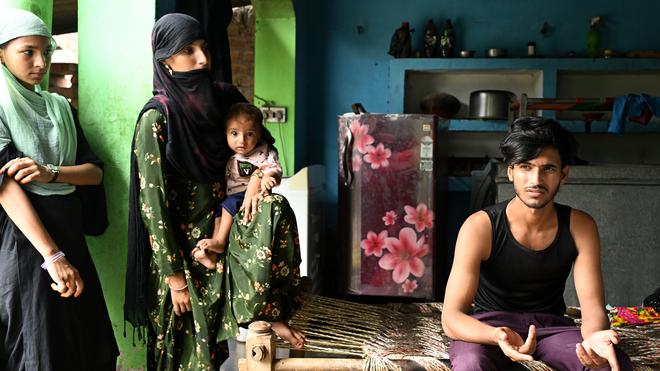
Yusuf Khan was only 14 when his brother-in-law Rakbar, a resident of Tapkan village in Haryana’s Nuh, was beaten to death by cow vigilantes in Rajasthan’s Lalawandi village in 2018 over the suspicion of cattle smuggling. Forced to cut his education short, he began taking up odd jobs to help his widowed sister make ends meet. But today, a grown man, Yusuf says the unshakeable fear of another attack still makes him tremble.
Tapkan falls under Mewat, a district home to a sizeable number of Meo Muslims — none of whom are a stranger to the growing threat of vigilantism. Reports of lynching have trebled in the last decade, and only last week, a 26-year-old migrant from West Bengal was beaten to death in Charkhi Dadri over suspicions that he had eaten beef.
Yusuf’s goats dance around him, baaing while he talks. The eight members of the household have found space on the four charpoys in the verandah, and make to sleep. None of them have moved on from his brother-in-law’s death, says Yusuf, and neither have the families of other victims — be it Pehlu Khan in Nuh, Junaid and Nasir whose charred bodies were found in Bhiwani, or even Mohammed Akhlaq, who was killed by a mob in Dadri, U.P., in 2015.
“People are working in groups to ensure that we’re deprived of our living. They target us when we don’t pay them bribes, which go as high as ₹50,000 to ₹1 lakh. These people pretend to be gau rakshaks (cow vigilantes) and get away with murder. Families here are living in fear, and we want change. We want to be heard,” says Yusuf, who now works as a dairy farmer and manages meat trade for an online company.
This story was originally published in thehindu.com. Read the full story here.

